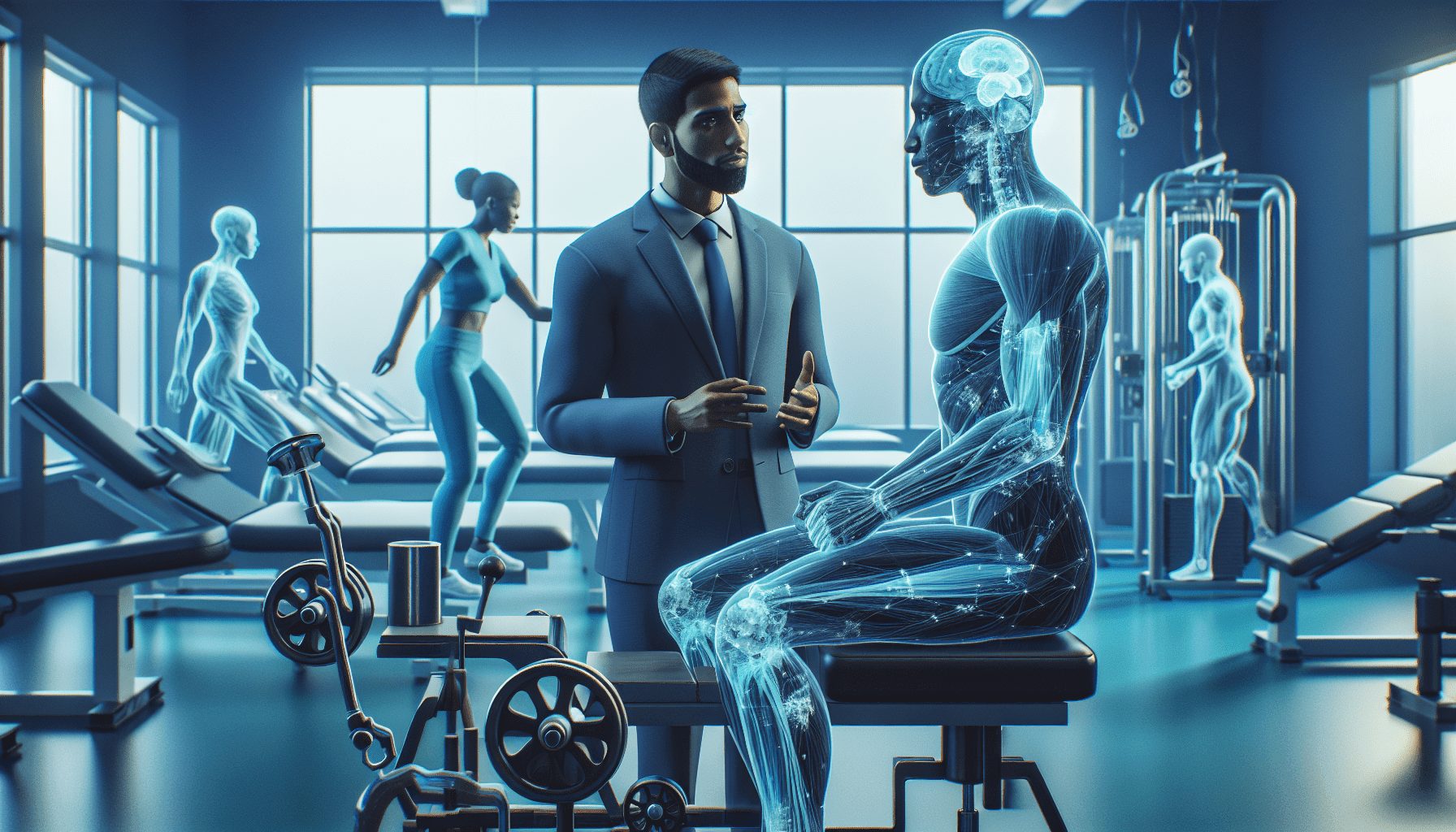Revolutionizing Recruitment: How AI Transforms the Hiring Process
Overview of AI in recruitment
In the rapidly evolving landscape of recruitment, artificial intelligence (AI) has emerged as a game-changer, revolutionizing the way organizations find and hire top talent. By harnessing the power of advanced algorithms and machine learning, AI has the potential to streamline and optimize every stage of the hiring process. From resume screening to onboarding and training, AI technologies are transforming the way businesses attract and retain the best candidates.
AI’s role in recruitment is multifaceted and impactful. It enables organizations to automate time-consuming tasks, improve efficiency, and make more accurate decisions. With the ability to analyze vast amounts of data and identify patterns, AI systems can quickly sift through resumes, identify qualified candidates, and even conduct preliminary interviews. By leveraging AI, businesses can save precious time and resources, allowing recruiters to focus on building meaningful relationships and making strategic hiring decisions.
Resume screening is one area where AI has made a significant impact. Traditional methods of manually reviewing resumes can be time-consuming and prone to human bias. However, with AI-powered resume screening tools, recruiters can automate the initial screening process, efficiently filtering out unqualified candidates and identifying those who meet the desired criteria. This not only saves time but also ensures a fair and unbiased evaluation of applicants.
Another area where AI excels is candidate sourcing. Finding the right candidates for a job opening can be a daunting task, but AI algorithms can quickly search through vast databases and online platforms to identify potential candidates based on specific criteria. By utilizing AI candidate sourcing tools, recruiters can access a wider pool of talent and target candidates with the desired skills and experience.
Interviewing and assessing candidates is another critical aspect of the hiring process where AI has made significant strides. AI-powered interviewing and assessment tools can conduct preliminary interviews, evaluate candidates’ responses, and even analyze facial expressions and body language. These tools provide valuable insights to recruiters, helping them make more informed decisions and identify candidates who are the best fit for the organization.
Once the right candidate is selected, AI can also play a crucial role in onboarding and training. AI-based training platforms can provide personalized learning experiences, adapt to individual needs, and track progress. This not only enhances the efficiency of employee onboarding but also promotes continuous learning and development within the organization.
The benefits of incorporating AI into the recruitment process are vast. Not only does it save time and costs, but it also improves efficiency and accuracy. Candidates also benefit from enhanced experiences, as AI systems can provide personalized recommendations and engage with them in a more interactive and efficient manner. Furthermore, AI technologies promote unbiased decision-making, reducing the risk of human biases influencing hiring decisions.
However, as with any technological advancement, there are challenges and considerations that organizations must address. Ethical concerns surrounding the use of AI, data privacy and security, the need for human interaction and judgment, and the integration and adoption of AI systems into existing processes are all areas that require careful thought and consideration.
In the following sections, we will explore the benefits of AI in recruitment in more detail, discuss the challenges and considerations, examine successful examples of AI implementation, and explore future trends and predictions in this rapidly evolving field.
Stay tuned to discover how AI-powered recruitment tools are reshaping the hiring landscape and propelling organizations towards a more efficient and effective hiring process.
The Role of AI in the Hiring Process
Artificial Intelligence (AI) is revolutionizing the hiring process by streamlining and optimizing various stages of recruitment. From resume screening to onboarding and training, AI has become an invaluable tool for organizations seeking to find the best talent efficiently and effectively.
Resume Screening
One of the most time-consuming tasks in recruitment is the initial screening of resumes. AI-powered software, such as ai screening tools and ai recruiting software, can analyze and categorize resumes based on predefined criteria. This eliminates the need for manual screening, enabling recruiters to focus on more strategic aspects of the hiring process.
By using AI for resume screening, organizations can reduce bias and ensure a fair evaluation of candidates. These tools can assess qualifications, skills, and experience, matching them with job requirements. Additionally, AI-powered systems can learn from previous hiring decisions, constantly improving their screening algorithms.
Candidate Sourcing
Finding the right candidates for a job can be a daunting task, especially when organizations receive a high volume of applications. AI plays a crucial role in ai candidate sourcing by leveraging advanced algorithms to search and identify potential candidates from various sources, including job boards, social media platforms, and professional networks.
AI-based recruitment tools can automatically filter and rank potential candidates based on their qualifications and suitability for the role. This saves recruiters considerable time and effort in manually searching and shortlisting candidates. Furthermore, by analyzing vast amounts of data, AI can identify passive candidates who may not actively be looking for new opportunities but possess the desired skills and experience.
Interviewing and Assessment
Traditional interviews and assessments can be subjective and time-consuming. AI is transforming this process by introducing innovative techniques that enable more efficient and objective evaluations.
AI-powered chatbots, for example, can conduct initial interviews and assessments, asking candidates relevant questions and analyzing their responses. These chatbots can assess not only the content but also the tone and sentiment of the candidates’ answers, providing valuable insights to recruiters.
Moreover, AI is enabling the use of virtual reality (VR) for assessments. Candidates can experience realistic scenarios and interact with simulated environments, allowing recruiters to evaluate their skills and abilities in a more immersive and accurate manner. This eliminates the need for costly and time-consuming in-person assessments.
Onboarding and Training
Once candidates are hired, AI continues to play a vital role in their onboarding and training. AI-powered platforms can create personalized training programs based on individual needs and learning styles. By leveraging predictive analytics, these platforms can recommend specific courses, resources, and activities to enhance the learning experience.
Additionally, AI can facilitate knowledge sharing and collaboration among employees. Chatbots and AI-based systems can provide instant answers to common questions and assist in troubleshooting. This not only improves the efficiency of onboarding but also promotes continuous learning and development within the organization.
In conclusion, AI has transformed the hiring process by automating and enhancing various stages. From resume screening to onboarding and training, AI-powered tools and systems have the potential to save time and costs, improve efficiency and accuracy, enhance the candidate experience, and enable unbiased decision-making. As organizations continue to embrace AI in recruitment, they can expect to achieve better outcomes and gain a competitive edge in attracting and retaining top talent.
Benefits of AI in Recruitment
In the fast-paced world of recruitment, Artificial Intelligence (AI) has emerged as a game-changer, revolutionizing the way organizations find and hire top talent. By leveraging advanced algorithms and machine learning capabilities, AI brings a host of benefits that streamline the hiring process and deliver tangible results. Let’s explore some of the key advantages that AI brings to the table.
Time and Cost Savings
One of the most significant benefits of AI in recruitment is the substantial time and cost savings it offers. Traditional recruitment methods often involve manual screening of resumes, which can be a time-consuming and labor-intensive task. However, with the advent of AI-powered screening tools, recruiters can now automate this process, significantly reducing the time spent on initial resume evaluation.
Moreover, AI tools can quickly analyze and categorize a large volume of resumes, allowing recruiters to focus their efforts on the most qualified candidates. By automating repetitive and time-consuming tasks, AI enables recruiters to be more efficient and frees up their time to focus on strategic aspects of the hiring process. This not only saves time but also reduces recruitment costs, making the overall process more cost-effective.
Improved Efficiency and Accuracy
In addition to time and cost savings, AI in recruitment brings a remarkable improvement in efficiency and accuracy. AI-powered tools can swiftly sift through vast databases of potential candidates, utilizing advanced algorithms to match job requirements with candidate profiles. This enables recruiters to identify the most suitable candidates quickly and accurately.
Moreover, AI algorithms can learn and adapt over time, continuously improving their matching capabilities based on feedback and data analysis. This iterative process ensures that the selection of candidates becomes more precise with each iteration, leading to better hiring decisions and reduced chances of mismatches.
Enhanced Candidate Experience
The candidate experience plays a crucial role in attracting and retaining top talent. AI in recruitment helps create a positive and personalized experience for candidates throughout the hiring process. Chatbots powered by AI can engage with candidates, answering their questions and providing timely updates on their application status. This proactive communication not only keeps candidates informed but also enhances their overall experience.
Furthermore, AI tools can analyze and interpret candidate data, including resumes, cover letters, and online profiles, to provide recruiters with a comprehensive understanding of each candidate’s skills, qualifications, and cultural fit. This in-depth knowledge allows recruiters to tailor their interactions and engage in meaningful conversations, creating a highly personalized experience for candidates.
Unbiased Decision Making
Unconscious biases can unknowingly influence recruitment decisions, leading to unfair practices and missed opportunities. AI in recruitment helps mitigate these biases by relying on objective data and algorithms to make hiring decisions. Unlike human recruiters, AI systems are not influenced by factors such as gender, ethnicity, or age. Instead, they evaluate candidates solely based on their qualifications and merit, ensuring a fair and unbiased selection process.
By leveraging AI-powered screening and assessment tools, organizations can ensure that every candidate is evaluated on an equal playing field, leading to a more diverse and inclusive workforce. This not only promotes fairness but also enhances the overall quality of hires and fosters a culture of equality within the organization.
In conclusion, the benefits of AI in recruitment are undeniable. From time and cost savings to improved efficiency and accuracy, enhanced candidate experience, and unbiased decision-making, AI has the potential to transform the hiring process for the better. As organizations continue to embrace the power of AI, it is crucial to strike a balance between technology and human judgment, ensuring that AI complements rather than replaces the expertise and insights of human recruiters. With the right integration and adoption strategies, AI can unlock new possibilities and drive success in the world of recruitment.
Challenges and Considerations
As with any technological advancement, the integration of Artificial Intelligence (AI) in the hiring process brings along its own set of challenges and considerations. While the benefits are evident, it is important to address the potential issues that may arise. In this section, we will explore some of the key challenges and considerations associated with AI in recruitment.
Ethical Concerns
One of the primary concerns surrounding AI in recruitment is the ethical implications it raises. With AI-powered tools making decisions and judgments about candidates, there is a risk of bias and discrimination. Algorithms may inadvertently favor certain demographics or perpetuate existing inequalities in the workforce. It is crucial for organizations to ensure that their AI systems are designed and trained to be fair and unbiased, taking into account diverse backgrounds and experiences. Regular audits and evaluations should be conducted to identify and rectify any biases that may arise.
Data Privacy and Security
The use of AI in the hiring process involves the collection and analysis of vast amounts of personal data. This raises concerns about data privacy and security. Organizations must take measures to protect the confidentiality and integrity of candidate information. Robust security protocols should be implemented to safeguard against data breaches and unauthorized access. Transparency and clear communication regarding data usage and storage practices are essential to establish trust with candidates and comply with privacy regulations.
Human Interaction and Judgment
While AI can streamline and automate various aspects of the hiring process, it is important to strike a balance between technology and human interaction. Candidates often value personal connection and the opportunity to engage with a real person during the recruitment process. Organizations must ensure that AI is used as a tool to augment human judgment and not replace it entirely. Human recruiters should be involved in key decision-making processes and should have the ability to override AI recommendations when necessary.
Integration and Adoption
The successful integration of AI in recruitment requires careful planning and consideration. Organizations must assess their existing infrastructure and processes to determine the most effective way to incorporate AI technologies. Integration may require significant changes in workflows, training programs, and organizational culture. It is important to ensure that employees are adequately trained and prepared to work alongside AI systems. Additionally, organizations should consider the potential resistance to change and the need for effective change management strategies to facilitate smooth adoption.
Navigating these challenges and considerations is crucial for the successful implementation of AI in the hiring process. By addressing ethical concerns, prioritizing data privacy and security, balancing human interaction with technology, and carefully managing integration, organizations can harness the full potential of AI to revolutionize their recruitment practices.
To learn more about how AI is transforming the hiring process, check out our article on AI recruiting tools.
Successful Examples of AI in Recruitment
Case Study 1: Company A
In the world of recruitment, Company A has emerged as a trailblazer in harnessing the power of artificial intelligence (AI) to streamline and optimize their hiring process. By leveraging cutting-edge AI technologies, Company A has revolutionized the way they identify, evaluate, and select top talent.
One of the key areas where Company A has implemented AI is resume screening. Instead of manually reviewing an overwhelming number of resumes, they use AI-powered algorithms to scan and analyze each applicant’s qualifications, skills, and experience. This process not only saves significant time and effort but also ensures that no potential candidate is overlooked. By using AI screening tools, Company A can identify the most qualified candidates with precision and efficiency.
Another aspect where AI has made a significant impact for Company A is candidate sourcing. Rather than relying solely on traditional methods such as job boards and referrals, they utilize AI to search for potential candidates across various platforms and social media networks. These AI sourcing tools employ advanced algorithms to identify individuals whose profiles align with the desired job requirements and cultural fit. As a result, Company A has been able to expand their talent pool and discover hidden gems that may have otherwise been missed.
Moving on to the interviewing and assessment stage, Company A has embraced AI to conduct automated video interviews. Through the use of AI-based chatbots, candidates can engage in virtual interviews that simulate real-life conversations. These chatbots are programmed to ask relevant questions, evaluate responses, and provide feedback to both the candidates and the hiring team. This innovative approach not only saves time but also ensures consistency and fairness in the assessment process. Company A has successfully integrated AI-powered chatbots into their recruitment strategy, enhancing the candidate experience and minimizing human bias.
Once the candidates have been selected, Company A leverages AI in the onboarding and training phase. They utilize AI-driven recruitment software to create personalized onboarding plans and training modules tailored to each new hire’s strengths and areas for development. This approach allows for a more efficient and effective onboarding process, enabling employees to quickly adapt to their new roles and contribute to the company’s success.
Case Study 2: Company B
In the realm of AI-driven recruitment, Company B has emerged as a pioneer, showcasing the immense potential of AI technology in transforming the hiring landscape. With a commitment to innovation, Company B has successfully integrated AI into every stage of their recruitment process, from initial candidate screening to post-hire performance evaluation.
To streamline their resume screening process, Company B employs AI algorithms that can quickly parse through vast amounts of data, identifying the most qualified candidates based on predetermined criteria. These AI recruiting tools enable Company B to efficiently sift through resumes, saving valuable time and resources that can be redirected towards more strategic aspects of recruitment.
When it comes to candidate sourcing, Company B takes advantage of AI to proactively identify and engage with potential candidates. By leveraging AI-powered platforms, Company B can tap into a wider talent pool and target passive candidates who may not be actively searching for new opportunities. This approach, known as AI talent sourcing, has proven to be highly effective in uncovering exceptional talent that may have otherwise gone unnoticed.
During the interviewing and assessment phase, Company B uses AI-powered interview software to conduct automated video interviews. This software utilizes natural language processing (NLP) and facial recognition algorithms to analyze candidates’ responses, non-verbal cues, and emotional expressions. By eliminating human bias and providing objective assessments, Company B ensures fair and consistent evaluations throughout the hiring process.
In the onboarding and training stage, Company B relies on AI to deliver personalized training programs to new hires. By analyzing data from the recruitment process, AI algorithms can identify specific areas where each employee may need additional support or development. This allows Company B to tailor training modules and resources to individual needs, accelerating the onboarding process and optimizing employee performance.
Case Study 3: Company C
Company C is a prime example of how AI can transform the recruitment landscape, enabling organizations to identify and attract top talent with unparalleled efficiency and accuracy. By leveraging cutting-edge AI technologies, Company C has revolutionized their recruitment strategy, achieving remarkable results in terms of time-to-hire, candidate quality, and overall hiring success.
In the resume screening phase, Company C has implemented AI-powered algorithms that can quickly analyze and evaluate resumes based on predefined criteria. This allows them to swiftly identify the most qualified candidates, eliminating the need for time-consuming manual reviews. By leveraging state-of-the-art AI recruitment software, Company C has gained a competitive edge in their ability to identify the best-fit candidates in a fraction of the time.
When it comes to candidate sourcing, Company C leverages AI to expand their reach and tap into diverse talent pools. By utilizing AI-powered platforms and AI-based recruitment tools, they can proactively search for potential candidates across various online sources, including job boards, social media platforms, and professional networks. This approach enables Company C to cast a wider net and connect with candidates who possess the specific skills and experience required for their open positions.
During the interviewing and assessment stage, Company C employs AI-powered video interviewing platforms to conduct virtual interviews. These platforms utilize advanced video analysis algorithms to assess candidates’ verbal and non-verbal cues, providing valuable insights into their suitability for the role. By automating the interview process, Company C can efficiently evaluate a large number of candidates while maintaining consistency and fairness.
In the onboarding and training phase, Company C utilizes AI to personalize the onboarding experience for new hires. By leveraging data from the recruitment process, AI algorithms can identify each employee’s unique strengths and areas for development. This enables Company C to deliver tailored training programs and resources, empowering new hires to quickly acclimate to their roles and contribute to the organization’s success.
These case studies serve as compelling evidence of the transformative power of AI in the realm of recruitment. Companies like Company A, Company B, and Company C have successfully harnessed the potential of AI to optimize their hiring process, resulting in improved efficiency, accuracy, and candidate experience. As the adoption of AI in recruitment continues to grow, these examples provide valuable insights into the possibilities and benefits that await organizations embracing this technology.
Future Trends and Predictions
As the world of recruitment continues to evolve, the integration of Artificial Intelligence (AI) is expected to play a significant role in shaping the future of the hiring process. With advancements in technology, AI-powered chatbots, predictive analytics, virtual reality for assessments, and continuous learning and development are emerging as the key trends and predictions in the recruitment landscape.
AI-powered Chatbots
One of the most exciting developments in recruitment is the use of AI-powered chatbots. These intelligent bots are designed to interact with candidates, providing them with real-time information and assistance throughout the application process. By utilizing natural language processing and machine learning algorithms, chatbots can answer frequently asked questions, provide personalized recommendations, and even conduct preliminary screenings. This not only saves time for both recruiters and candidates but also ensures a seamless and engaging experience.
Predictive Analytics
Predictive analytics is another powerful tool that is reshaping the recruitment industry. By leveraging historical data, machine learning algorithms can analyze patterns and trends to predict future outcomes. In the context of hiring, predictive analytics can help recruiters identify the most suitable candidates for a particular role. By analyzing factors such as skills, experience, and cultural fit, recruiters can make data-driven decisions, increasing the chances of finding the right talent. This not only saves time and resources but also enhances the overall quality of the hiring process.
Virtual Reality for Assessments
Virtual reality (VR) is no longer limited to the gaming industry. It has found its way into the recruitment space as well. VR assessments provide a simulated environment where candidates can showcase their skills and abilities. This immersive experience allows recruiters to evaluate candidates’ capabilities in a more realistic setting, providing a better assessment of their potential. Whether it’s assessing technical skills, problem-solving abilities, or situational judgment, VR assessments offer a novel and effective way to gauge a candidate’s suitability for a role.
Continuous Learning and Development
In an era of rapid technological advancements, continuous learning and development have become crucial for both organizations and individuals. AI can play a significant role in facilitating this process. By leveraging AI algorithms, organizations can provide personalized learning experiences tailored to individual needs. AI can analyze employees’ performance, identify skill gaps, and recommend relevant training programs. This not only helps in upskilling and reskilling the workforce but also ensures that employees stay aligned with the evolving demands of the industry.
The future of recruitment is undoubtedly intertwined with AI. From AI-powered chatbots to predictive analytics, virtual reality assessments to continuous learning and development, these trends and predictions are poised to revolutionize the hiring process. As organizations embrace these advancements, they can expect to streamline their recruitment efforts, improve the quality of hires, and ultimately gain a competitive edge in the talent market.
To learn more about AI in recruitment, consider exploring our blog post on AI in Recruitment.
Conclusion
In conclusion, the integration of AI into the hiring process has revolutionized the way organizations attract, assess, and onboard talent. With the help of AI recruiting tools, companies can streamline their recruitment efforts and achieve more efficient and effective outcomes.
The benefits of using AI in recruitment are manifold. Firstly, it saves time and reduces costs by automating repetitive tasks such as resume screening and candidate sourcing. This allows recruiters to focus their time and energy on more strategic and value-added activities. Secondly, AI brings improved efficiency and accuracy to the hiring process, ensuring that the most qualified candidates are identified and selected. This not only enhances the overall quality of hires but also minimizes the risk of bias in decision-making.
Another significant advantage of AI in recruitment is the enhanced candidate experience it offers. Through the use of AI-powered chatbots and personalized communication, candidates receive prompt responses and updates throughout the hiring journey, creating a positive impression of the organization. Additionally, AI enables unbiased decision-making by removing human biases and relying on objective data and algorithms.
However, it is important to consider the challenges and ethical concerns associated with AI in recruitment. Privacy and security of candidate data are paramount, and organizations must ensure compliance with data protection regulations. Moreover, the role of human interaction and judgment cannot be underestimated. While AI can assist in the initial screening and assessment stages, the final decision-making process should involve human intervention to consider intangible factors such as cultural fit and interpersonal skills.
Looking ahead, the future of AI in recruitment holds exciting possibilities. The advent of predictive analytics will enable organizations to forecast their talent needs, aligning recruitment strategies with future requirements. Virtual reality assessments will provide a more immersive and realistic evaluation of candidates’ skills and capabilities. Furthermore, continuous learning and development powered by AI will enable employees to upskill and adapt to rapidly changing job landscapes.
To illustrate the success of AI in recruitment, we have examined three case studies. In the first case study, Company A leveraged an AI-based recruitment platform to significantly reduce time-to-hire and improve the quality of hires. Company B utilized AI sourcing tools to tap into a wider talent pool and identify highly skilled candidates. Lastly, Company C implemented an AI recruitment software that enhanced their candidate experience and resulted in higher candidate satisfaction.
In summary, the integration of AI into the recruitment process has proven to be a game-changer for organizations worldwide. The time and cost savings, improved efficiency and accuracy, enhanced candidate experience, and unbiased decision-making are just a few of the benefits that AI brings to the table. As technology continues to advance, organizations must embrace AI in recruitment to stay competitive in the talent market and ensure they are attracting the best candidates for their teams.
To explore how AI can transform your recruitment process, engage with Engaged Headhunters, an AI recruitment agency that specializes in leveraging artificial intelligence to deliver exceptional results.







